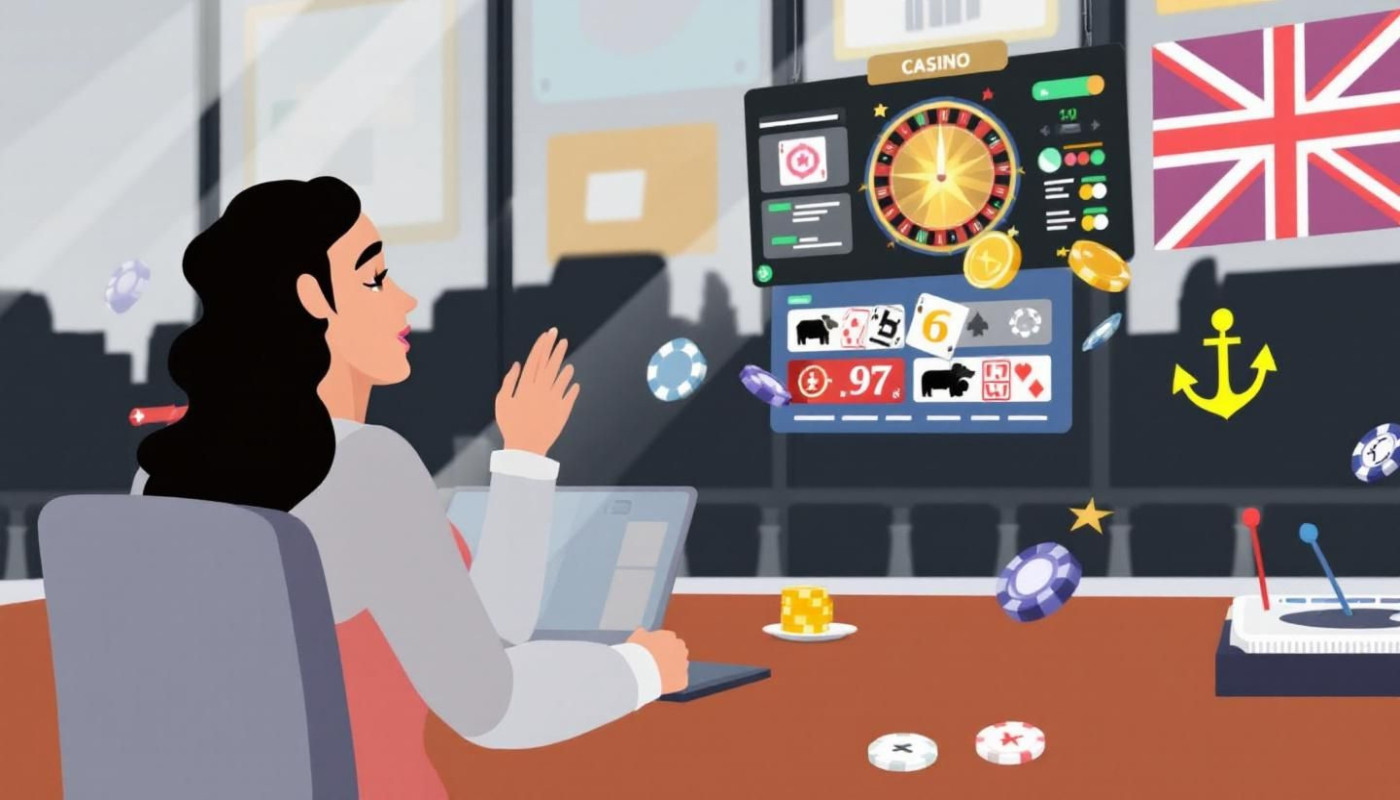Table of contents
The digital era has heralded a plethora of transformations across various industries, and the realm of gaming is no exception. Slot games, once confined to the corners of brick-and-mortar casinos, have now exploded onto the digital landscape, offering an array of experiences that continually push the boundaries of innovation and entertainment. This deep dive into the evolution of slot games in the digital era will uncover how technology has reshaped one of the most popular forms of gaming, making it a subject ripe for exploration and discovery.
The Origins and Digital Transition of Slot Games
The inception of slot games traces back to the late 19th century, where the first mechanical slot machines were introduced as a simple yet enthralling form of entertainment. These early devices, operated by levers, spun reels with symbols, and were a fixture in bars and gaming halls. Over the decades, gaming technology evolved, and the digital gaming revolution began to take shape. The transition from the physical, mechanical slot machines to digital platforms marked a significant shift in how people engaged with these games. With the advent of software-based slots, the entire gaming experience became more accessible, diverse, and secure. Online slots have now become a mainstay in the digital gaming landscape, offering an array of themes and interactive features that were unimaginable in the era of the one-armed bandits. The technology shift was underscored by the implementation of sophisticated algorithms known as Random Number Generators (RNGs), which ensure fair play and randomness in the outcome of each spin. This technology is the backbone of modern software-based slots, providing a level of trust and integrity that has been instrumental in the continued popularity of online slots. As we explore the evolution of these games, we see how the digital era has not only enhanced the visual and auditory appeal of slot games but also improved the overall user experience with features such as progressive jackpots and bonus rounds. For those with an interest in the intricate details of this transition or in need of expert insight, why not look here where you can find a wealth of information provided by seasoned casino industry analysts and gaming historians, who can delve deeper into the fascinating journey from mechanical slot machines to the immersive digital worlds we enjoy today.
The Role of Graphics and Sound in Modern Slots
Within the realm of modern digital slot games, the importance of graphics and sound cannot be understated. These elements are pivotal in providing an immersive gaming experience that captivates users. High-definition graphics offer breathtaking visuals that are now a standard in the industry, allowing for a more realistic and engaging atmosphere. The use of advanced 3D rendering techniques has taken the visual aspect of these games to a whole new level, enabling developers to create lifelike characters and dynamic, intricate environments that draw players into the world of the game.
Simultaneously, audio effects in gaming play an equally significant role in enhancing player experience. The careful orchestration of soundtracks, the clinking of virtual coins, and the celebratory audio cues for wins are meticulously designed to simulate the casino environment. These sound elements evoke the excitement of a land-based casino floor, adding depth to the gameplay and reinforcing the game's theme. Moreover, thematic slot games rely heavily on both visual and auditory elements to transport players into different narratives and worlds, thereby increasing user engagement and retention. Together, the sophisticated integration of graphics and sound in slots not only enriches the user experience but is also a testament to the technological evolution of gaming in the digital era.
Mobile Gaming: Slot Games on the Go
The advent of mobile technology has been a game-changer for the casino industry, particularly for slot games. With the rise of 'mobile slot games', a significant transformation has occurred, allowing users to engage in slot gaming whenever and wherever they choose, reflecting a shift towards 'on-demand gaming'. The proliferation of 'gaming apps' tailored for slot experiences has contributed to the popularity of these games on 'portable devices'. This convenience has, in turn, led to an increase in 'player accessibility', attracting a broader audience beyond traditional casino goers. The integration of HTML5 technology has been pivotal to this transition, enabling seamless gameplay across multiple platforms and device types without compromising on the quality or speed of the gaming experience. As mobile devices continue to penetrate our daily lives, the demand for entertainment that caters to our on-the-go lifestyle will only intensify, reinforcing the centrality of mobile technology in the ongoing evolution of slot games.
The Impact of Social Media and Community Building
With the advent of digital technology, social media has become a powerful force in shaping the landscape of slot gaming. This transformation can be greatly attributed to the rise of social gaming, a phenomenon that has fostered extensive community engagement within the world of virtual slot machines. Through various social platforms, players have found vibrant communities where they can indulge in player interaction, sharing triumphs, strategies, and the vicarious thrill of the spin. This interconnectedness has not only amplified the excitement of playing but has also contributed to the popularity and longevity of these games.
These digital arenas facilitate shared gaming experiences that extend beyond the solitary act of pushing a button on a slot machine. They create an environment where stories and achievements are celebrated collectively, reinforcing the social aspect of gaming that physical casinos have traditionally provided. The social media influence on slot gaming is evident as it allows players to connect, compete, and collaborate in ways that were once unimaginable. This has led to a more immersive and engaging gaming experience, with cross-platform integration enabling seamless transitions between devices and platforms, further enhancing the social fabric that ties players together. As such, the modern slot game is not just a game of chance but a hub of vibrant social interaction.
Advancements in Slot Gaming Security and Fairness
In the realm of digital slot games, gaming security has become a pivotal concern for both players and operators. With the rise of regulated gaming, stringent regulatory requirements have been established to safeguard participants against fraud and ensure fair play in slots. Encryption technology plays a fundamental role in protecting user data and transactions. This security protocol encodes information, making it inaccessible to unauthorized parties, thereby fortifying trust in digital gaming.
Moreover, the implementation of provably fair algorithms marks a significant stride in guaranteeing fairness. These complex algorithms allow players to verify the randomness and equity of each game outcome, ensuring that no manipulation occurs. This level of transparency builds a robust foundation of confidence among the gaming community. As the industry continues to evolve, these technological advancements and regulatory frameworks together create a secure and equitable environment for enthusiasts of slot gaming.
Similar

Exploring The Benefits Of Regional Collaboration In Network Development

Unlock The Thrills: Exploring Different Online Casino Games

How Photography Enhances The Casino Experience

Exploring The Synergy Of Tradition And Technology In Modern Casinos

Maximizing Your Wins On Chicken Road 2: Top Strategies Uncovered

Effective Withdrawal Strategies For Online Casino Winnings

Exploring The Popularity Of Non-UK Casino Sites Among British Players

How Modern Websites Ensure User Authenticity?

Exploring The Latest Trends In Sustainable Fashion For A Chic Lifestyle

The Rising Popularity Of Money Games On Social Media

Exploring The Benefits Of Comprehensive Loyalty Programs In Online Casinos

Exploring The Importance Of Certification For Online Gambling Platforms

Exploring The Role Of Streaming In Promoting New Casino Games

How Virtual Team-building Activities Enhance Remote Work Dynamics

Exploring The Popularity Of Money Crash Games In Online Casinos

How To Benefit From Bonuses And Promotions In Online Casinos

The Benefits Of Choosing Mobile Platforms For Playing Chicken-themed Games

Exploring The Excitement Of A High-Stakes Road Crossing Game

The Advantages Of Using Secure Payment Methods In Online Casinos

How AI-driven Recommendations Are Reshaping Online Engagement

Maximizing Your Winnings: Tips For Online Casino Bonuses And Promotions

Exploring Traditional Japanese Crafts Through Modern E-commerce Platforms

Exploring The Thrills Of Online Mini Games Like Plinko

Exploring The Thrills Of Next-Generation Crash Casino Games

How To Choose The Best Online Casino Game For You

The Rise Of Animal-themed Games In Online Casinos

Exploring The Thrills Of Online Casino Bonuses And Secure Gaming Options

Exploring The Thrills Of Online Casinos: A Guide To Promotions, Games, And Secure Payment Methods

A Comparative Analysis Of Speedway Racing Techniques Around The World

The Thrill Of Randomness: Why Plinko Is The Ultimate Game Of Chance

The Evolution Of Live Casino Games: From Traditional Tables To Game Shows

The Psychological Impact Of Online Vs Live Gaming On Players

The Impact of Game Updates on CS2 Betting Strategies

Exploring the Thriving World of Online Casino Gaming in Ireland

What are the most profitable online casino games?

3 tips to win at PES 2020 efootball

3 tips for Halo Infinite beginners

2 online gambling pitfalls you should know about

